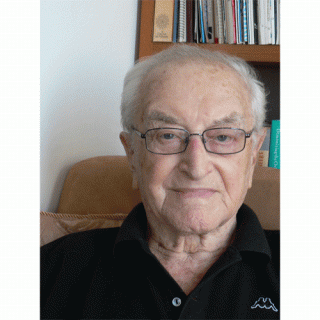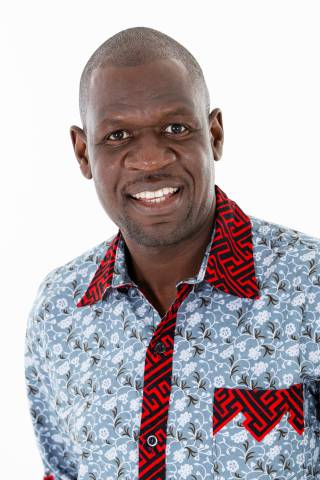2019 Beno Rothenberg Memorial Lecture - Africa and Globalisation (Prof. Shadreck Chirikure)
4 November 2019
IAMS is pleased to invite you to the 2019 Professor Beno Rothenberg Memorial Lecture, which will take place UCL Institute of Archaeology Tuesday the 26th of November at 6pm.
Professor Beno Rothenberg
Professor Beno Rothenberg (1914-2012), acclaimed photographer of the emerging state of Israel, self-taught scholar and founding father of archaeo-metallurgy, was one of only a handful of scientists who between them revolutionised the way in which we study and understand the production of metal prior to the Industrial Revolution. He pioneered the fusion of traditional archaeological and science-based approaches which later came to be known as archaeometry, with a strong emphasis on painstaking data gathering and photographic documentation in the field, chemical and mineralogical analysis of the archaeological remains unearthed, and visionary, if sometimes contentious interpretation of his observations. While his interests went well beyond the beginnings of mining and metallurgy, these are where he left his strongest legacy, not least through coining the very term 'archaeo-metallurgy', now used world-wide for the study of ancient metals and their production using scientific methods, and through establishing, directly and indirectly, two of the leading academic schools in this field. He was the founder of the Institute for Archaeo-Metallurgical Studies in 1973. Further information: http://www.ucl.ac.uk/iams/iams-news-publication/rothenberg_obituar
Professor Shadreck Chirikure
Shadreck Chirikure holds a British Academy Global Professorship within the School of Archaeology at Oxford. He is Professor of Archaeology, Director of the Archaeological Materials Laboratory and a former Head of the Department of Archaeology at the University of Cape Town. Funded by the Ronald Tylecote Fund of the Institute for Archaeometallurgical Studies, English Heritage and the Wenner Gren Foundation for Anthropological Research, Chirikure graduated with the degrees of PhD in Archaeology and MA in Artefact Studies from the Institute of Archaeology, UCL.
His research interweaves techniques from hard sciences with those from humanities and social sciences to explore ancient African technologies and political economies of precolonial state and non-state systems. Chirikure’s works draw interpretive flavors from African philosophies to revise concepts and to disrupt hegemonic thinking about the evolution of African technologies, their role in society, and to spur a critical reflection, over the long durée of Africa’s place in the world, and the world’s place in Africa.
This work is published in leading edge journals and books by top publishers. His book Metals in past societies (Springer) is the inaugural volume in a series that aims to articulate salient features of African archaeology to a global audience. Other influential works include Managing Africa’s heritage: who cares (Routledge) (co-edited with Webber Ndoro and Janette Deacon) and Archives, Objects, Places and Landscapes: Multidisciplinary approaches to Decolonised Zimbabwean pasts (co-edited with Munyaradzi Manyanga). Chirikure’s application of the framework of concept revision to reinterpret Great Zimbabwe will be published by Routledge in 2020.
Among others, Chirikure is a past recipient of the Association of Commonwealth Universities Fellowship at Linacre College, Oxford and is a former Mandela-Harvard Fellow. Chirikure is a past recipient of National Research Foundation of South Africa’s Presidential Award for outstanding research by persons under the age of 40 and is a founding member of the South African Young Academy of Science. He is the Editor-in-Chief of the Oxford Research Encyclopedia of African Archaeology, a Senior Editor of the Oxford Research Encyclopedia of Anthropology. In addition, he is one of the co-editors of Cambridge University Press’ History of Technology book series. Chirikure is a member of the Board of Governors for the Arts Council of African Studies Association and is a member of the Society for American Archaeologists Book Award Committee. Shadreck was recently elected to the Advisory Council of the New York based Wenner Gren Foundation for Anthropological Research. He sits on at least nine editorial boards of journals in the archaeology field and cognate disciplines. Chirikure has contributed to a number of art exhibitions, documentaries, radio shows and TV programs aimed at communicating archaeology to the general public.
Africa and early globalisation: a decolonial and archaeomaterials intervention
Some traditional views erroneously assumed that Africa was backward and isolated from the rest of the world. Such scholarship emphasised the position that, in encounters with the external, Africa mostly supplied raw materials and labour in the form of slaves and rarely anything else. Consequently, rarely have researchers investigated the contribution of Africa to the development of Middle Eastern, Chinese and Indian civilisations. Decades of field based, laboratory-inspired and theoretically grounded studies of remnants of precolonial metallurgy continually show that across the continent from the West, through the Central, to the East and South, Africans were extremely adaptive and versatile in the production of iron, copper, gold, and among others, tin. The differential availability of resources precipitated trade and exchange and commodities circulations within Africa, and between Africa and the other parts of the world. In the process, Africa achieved the status of the heartbeat of circulation of various materials and ideas in the world including Europe and Asia.
What, however, was the nature of this early global connectivity? As a follow on, what did Africa adopt from elsewhere, and what innovations did it give in return? Using case studies of pre-industrial metallurgy drawn from Africa’s multiple regions and theoretical flavours from decolonial thinking, the lecture engages with these and other questions. It argues that a significant mindset shift is required to understand, from within, the contributions of African innovations and materials to globalisation, looking outside. A failure to achieve this closes off a potentially interesting exploration of Africa’s material and intellectual contribution primarily to the evolution of globalisation and secondarily to globally shared histories.
 Close
Close



